I wanted to share some information about the current debates over the use of the mental health act, the new draft bill, and what people are asking for to be different, because it’s an issue that means a lot to me – and I think it’s so important we’re all aware of what’s going on, so we can fight for what we think is right. Autistic women have higher rates of mental ill health than non autistic women, and so changes to this act directly impact us. Up until now so many autistic women have been wrongly detained and forced into treatment that has further damaged their mental health or led to extremely distressing experiences, and legislation needs to be changed to stop this.
What is the mental health act?
The Mental Health Act 1983 legislates for the compulsory detention and treatment of people with a mental disorder in England and Wales. Under the act, a social worker, guided by two health professionals, can detain someone for mental health treatment, meaning they no longer have the choice of whether or not to recieve the treatment.
The act is being reformed due to multiple investigations into it being inappopriately used – the government’s 2018 Independent Review of the Mental Health Act created a series of recommendations based on increasing choice and autonomy, increasing therapeutic benefit, treating the person as an individual, and choosing the least restrictive option.
A first draft was created, and several charities and committees responded to this. A Joint Committee on the draft was also established in July 2022 to assess it, and published a report with its recommendations to Government in January 2023. The Government published its response in March 2024, stating they will introduce a revised bill “when Parliamentary time allows”.
Where does autism come into this?
Under the Mental Health Act, people can be detained if they are at risk of harming themselves or others due to a “mental disorder”. This term is currently defined to include learning disability and autism, although these are not mental health conditions. Many autistic individuals (in March 2024, 91% of people with a learning disability and/or autism who were in hospital were detained) have been detained and experienced inappropriate care, for example due to a lack of specialised services with reasonable adjustments and relevant training, overuse of restraints, over-medication, and extended periods of detention.
Why is it an issue for autistic persons to be detained?
Many inpatient units just aren’t suitable for autistic individuals. Even specialist units – a Care Quality Commission (CQC) review of 43 specialist autism and learning disability hospital wards in 2020 concluded that most were not therapeutic environments, and in 2023, 31% of NHS trusts and 47% of private providers of learning disability and autism services received a “requires improvement” or “inadequate” safety rating. Examples of inappropriate care include abuse of people with a learning disability and autistic people uncovered at the specialist hospitals Whorlton Hall in 2019 and Cygnet Yew Trees in 2020, and avoidable deaths of people with a learning disability at Cawston Park Hospital. A 2023 NHS review found that 41% of people with a learning disability and autistic people in hospital had care requirements that did not require hospital treatment.
Furthermore, research interviews with autistic people who have experienced mental health inpatient settings illustrate that the range and intensity of stimuli in hospitals, including irregular routines and interaction with unfamiliar staff, can be overwhelming. The research noted how autistic people can also experience communication barriers and misunderstandings with staff, who lack the training to recognise their needs. This can cause severe anxiety and distress that if managed inappropriately can lead to deterioration and use of restrictive interventions.
Even though The Health and Care Act 2022 requires all health and social care service providers to ensure staff receive the relevant training on learning disability and autism, research and inspections highlight a lack of such training for professionals working in inpatient settings.
What about the draft – what changes are there?
- The draft proposed to remove autism and learning disability as criteria for Section 3 detention in the absence of a co-occurring mental health condition.
This is concerning because for several reasons. It means that Section 2 detentions can still be used to detain autistic people without mental health conditions. It also could increase use of the Mental Capacity Act, which is a similar piece of legislation that can be even more restrictive.
Another concern is that, if a co-occurring condition can be used as criteria, clinicians may use this to section individuals who have learning disabilities/autism even if the co occurring condition isn’t the reason. - CETRs, which were introduced previously, will now be required every 12 months. However there are concerns 12 months is too long an interval, and that there will still be no way of enforcing the recommendations.
- Overall, there are concerns there is not enough emphasis on improving community support, to keep people out of hospital before crisis occurs, and to prevent admissions.
Right now, the government have paused the process of sorting out the act – they have said they will ‘seek to introduce a revised bill “when Parliamentary time allows”’.
Scope, Mencap, Rethink and many other charities are calling for the government to listen to the concerns that remain.
At the moment, I am very concerned too. I don’t believe these changes will prevent the distress and damage of inappropriate inpatient treatment that so many autistic women experience. About 32 percent of autistic women are hospitalised for a psychiatric condition by age 25, and I truly believe many of these admissions should not have happened – or should have been shorter than they were. Another time I will do a post specifically talking about my experiences of inpatient units and exactly why I so strongly feel we need to avoid autistic persons being forced into them. I do understand that sometimes it is necessary – sometimes there are crisis situations where it is warranted – but at the moment it is far too easy for autistic individuals to be admitted. If it were more difficult, more professionals would instead be forced to think differently and provide better support in the community, working to support them to better health in their own environment, which has been seen to have better, more sustianable treatment outcomes.
(Right click and open image in new tab to see the below infographics, bigger!)
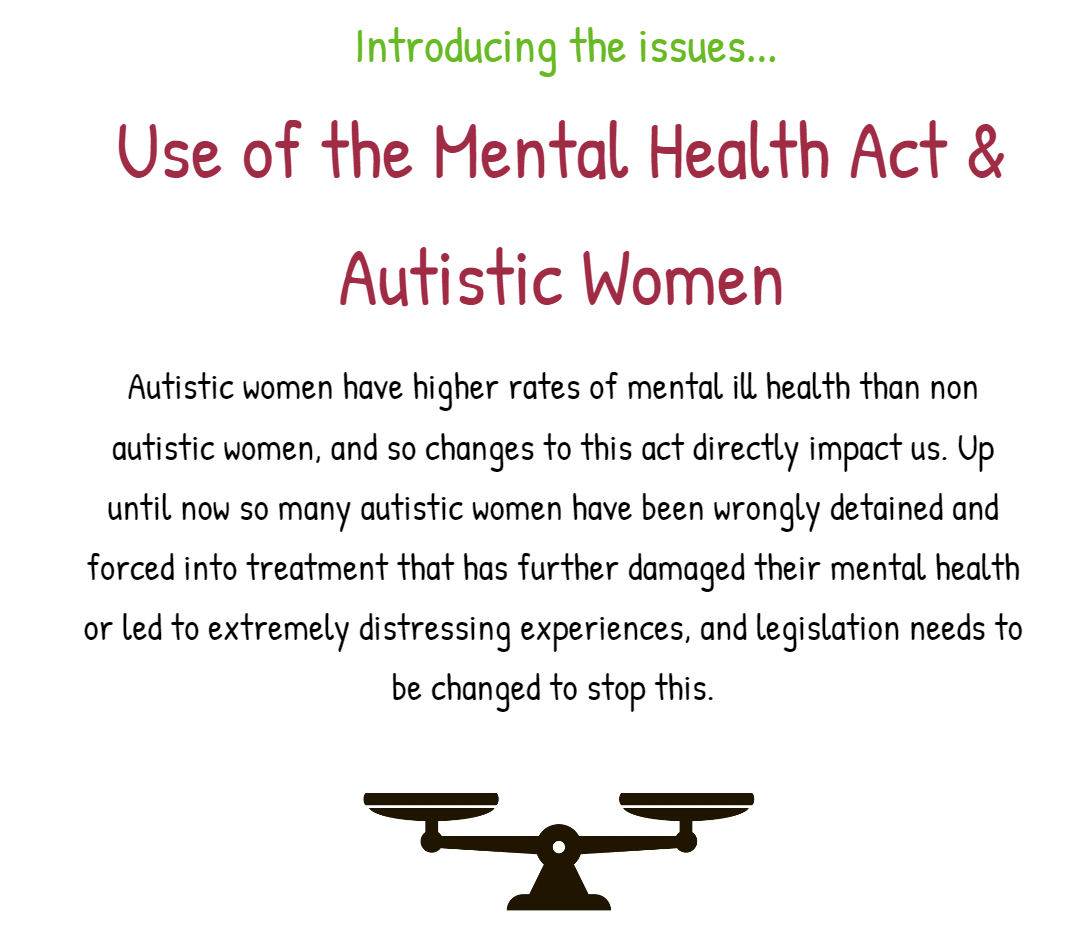
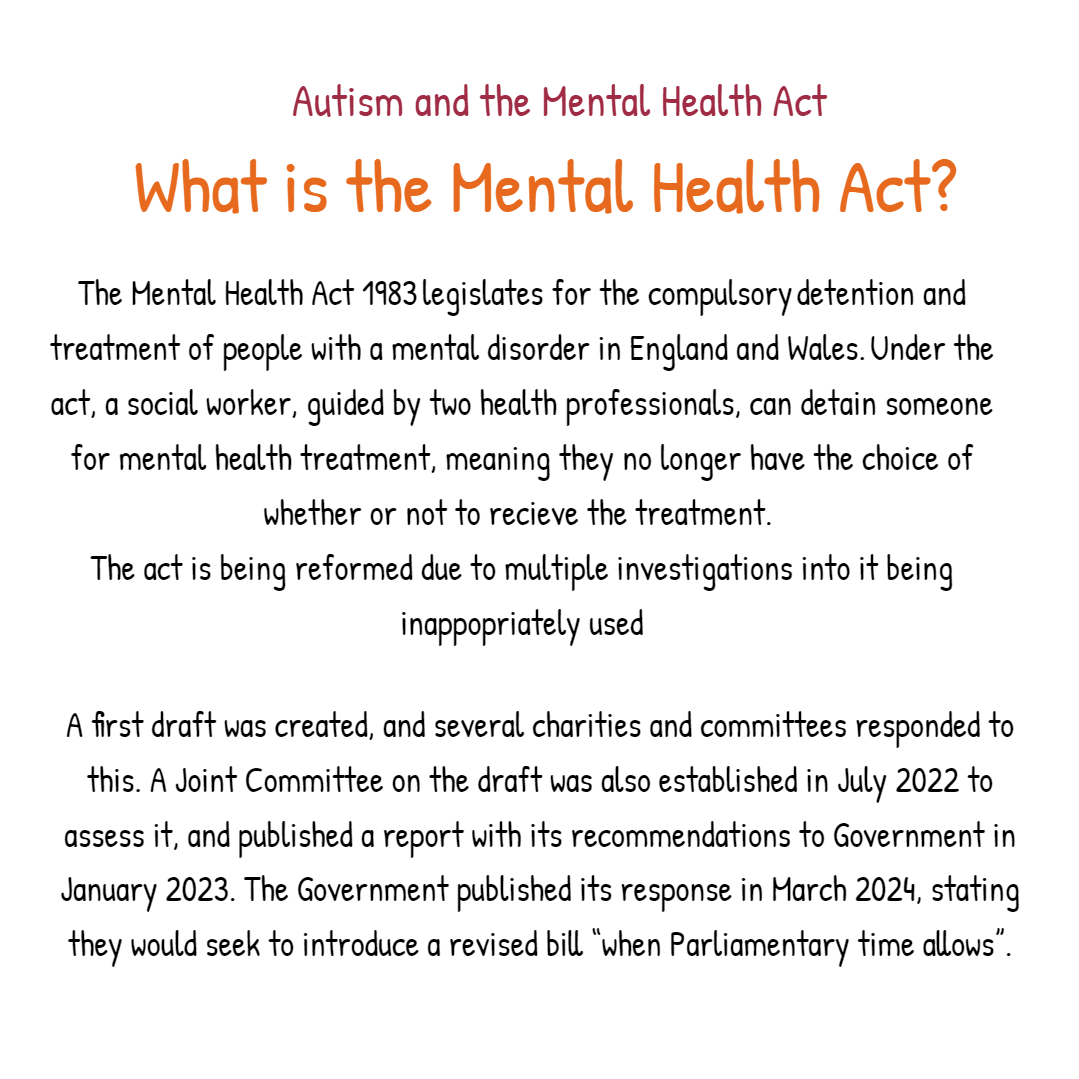
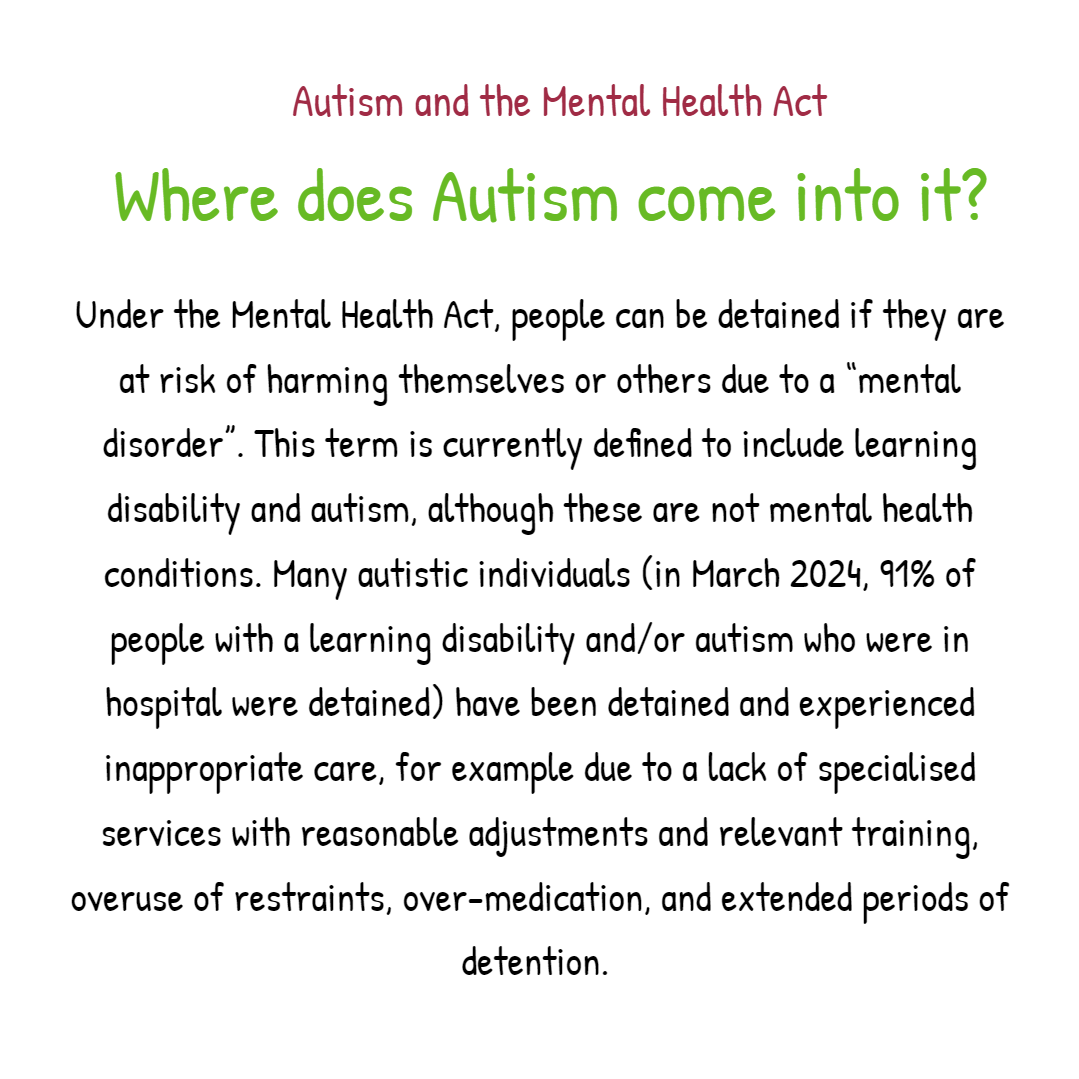
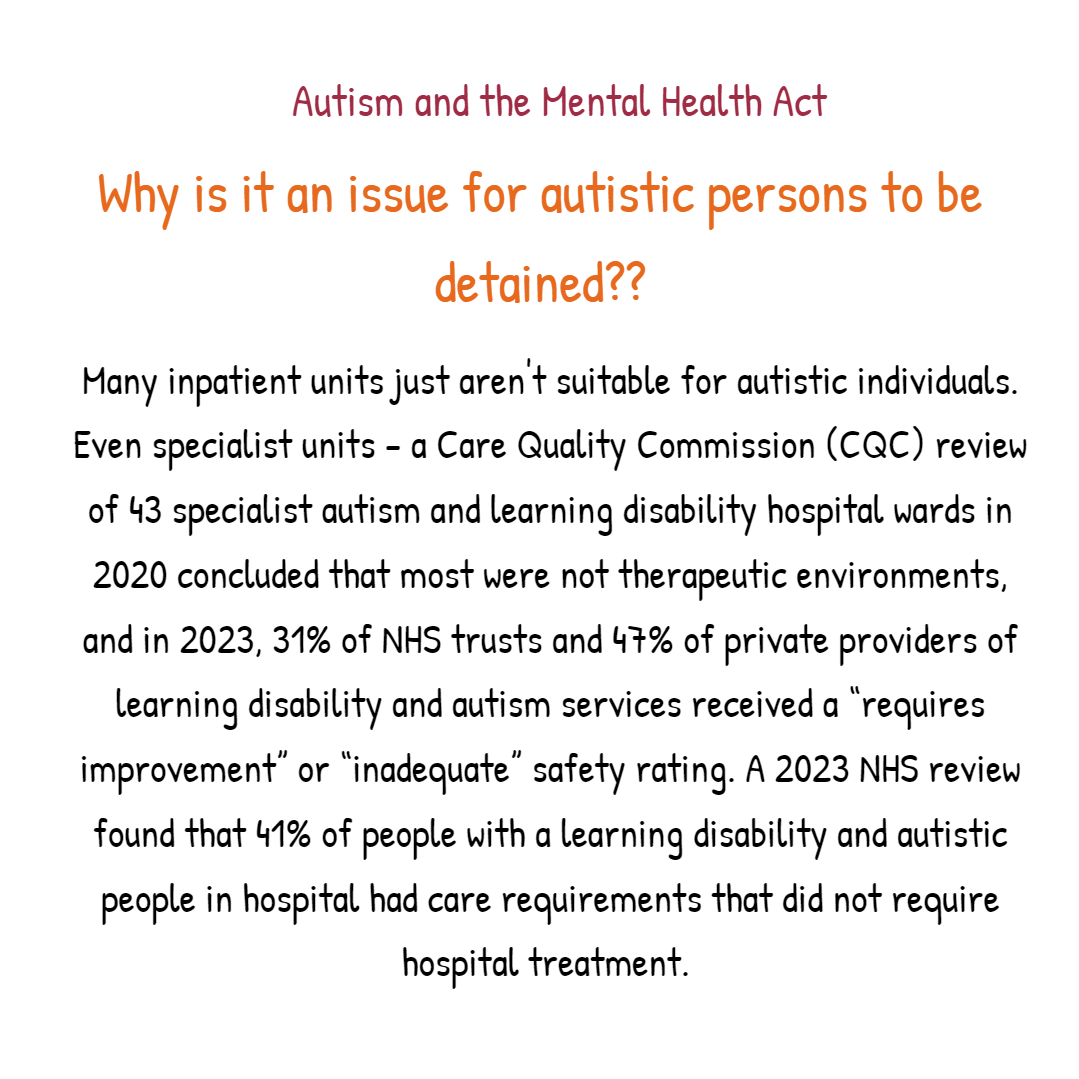
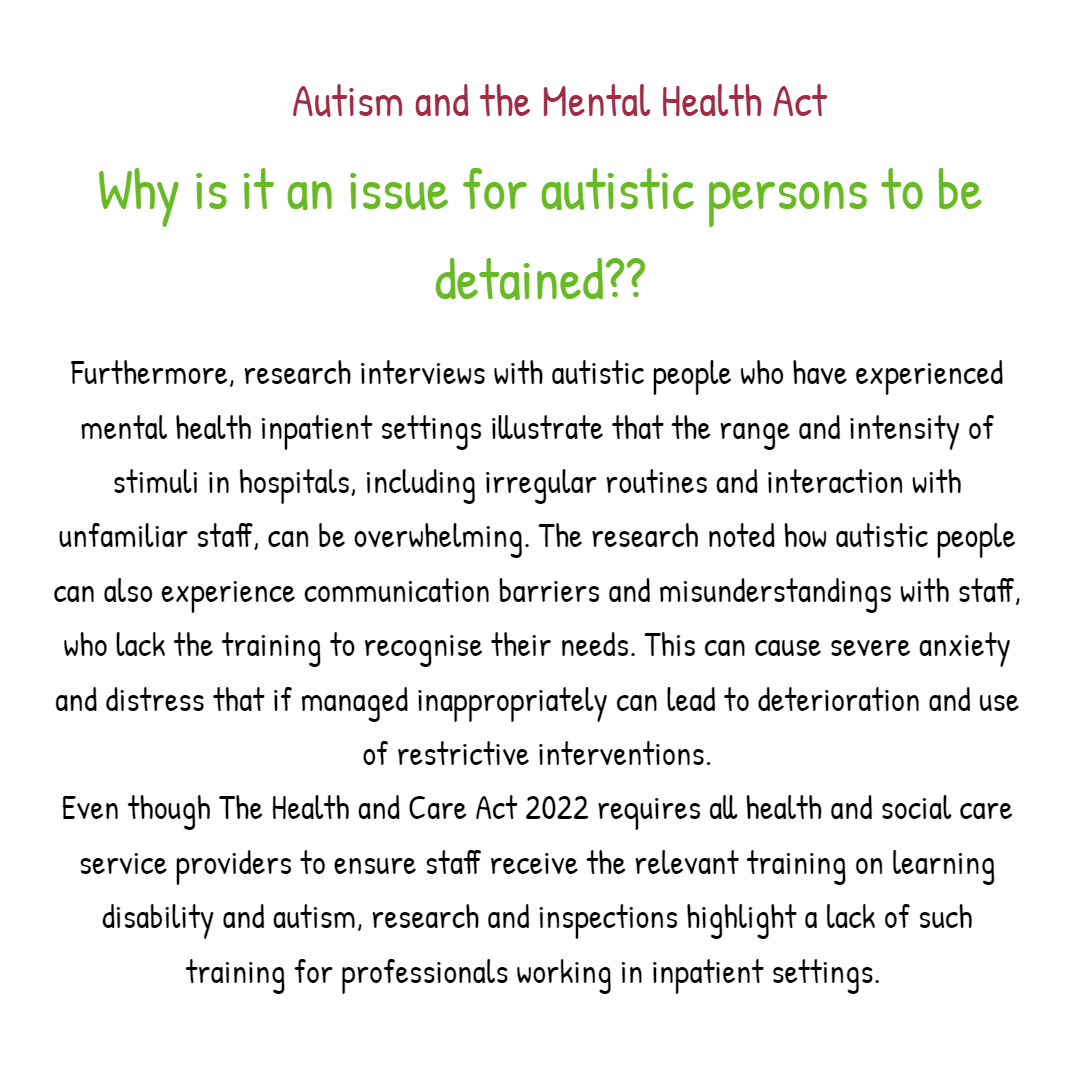
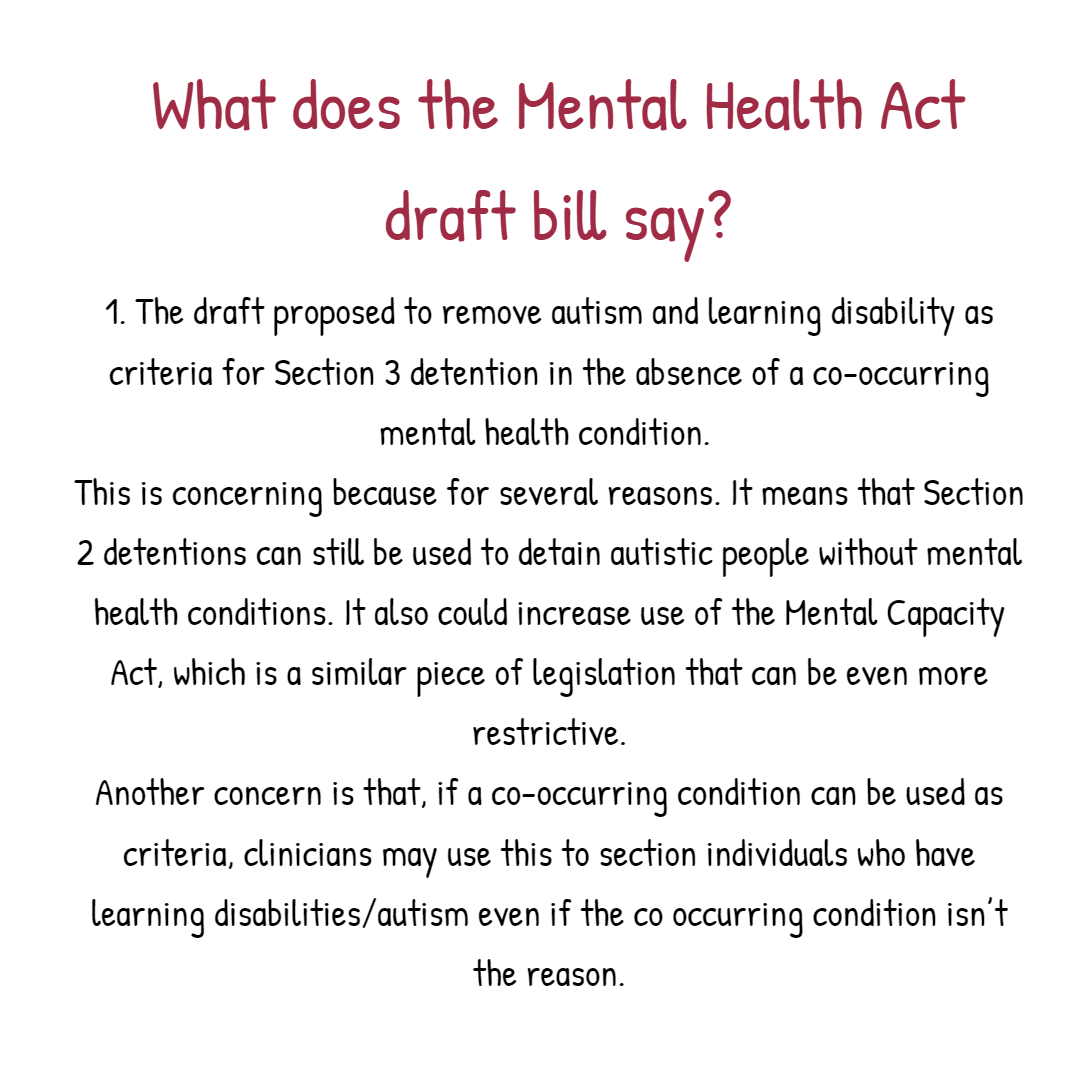
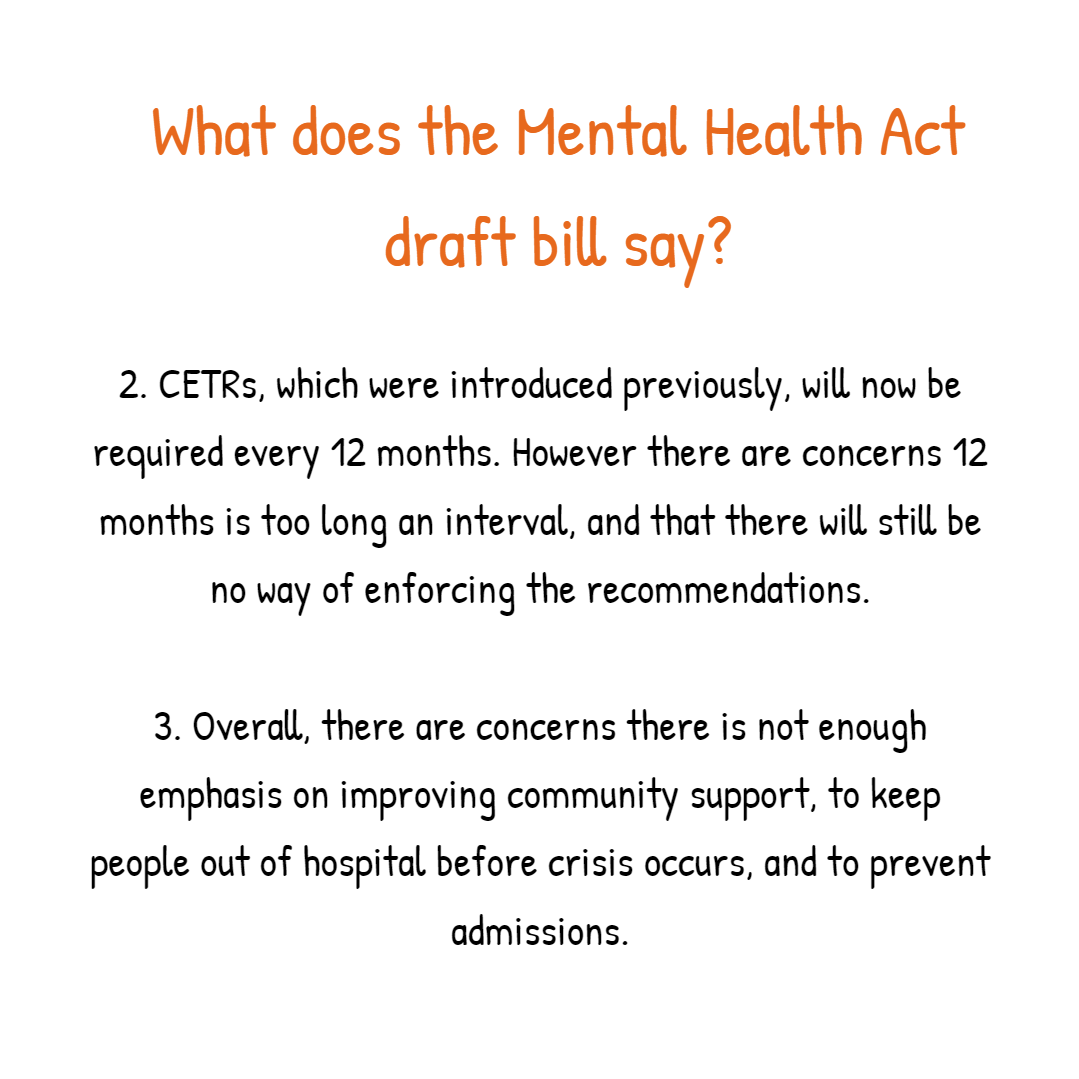

Leave a Reply